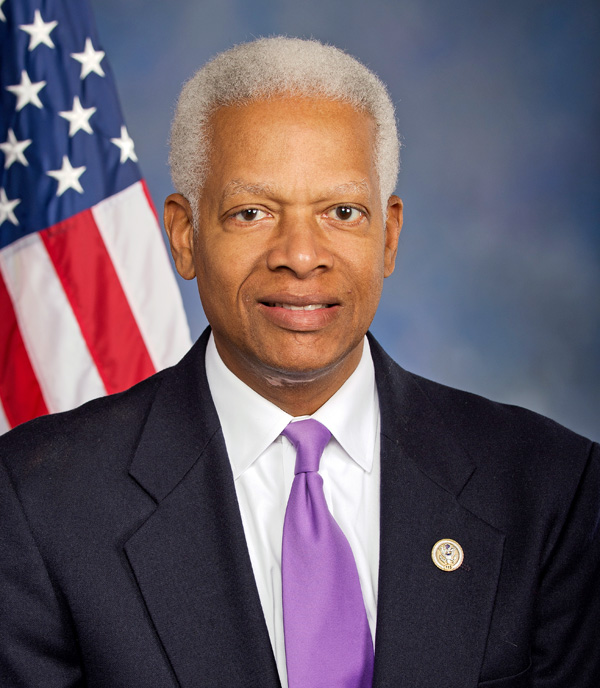
Georgia Congressman Files House Companion to Sen. Whitehouse, Blumenthal, Hirono Senate Bill; Reps. Cohen (TN) and Lieu (CA) Original Cosponsors of House Measure
Congressmen Hank Johnson (GA-04), Steve Cohen (TN-09) and Ted Lieu (CA-33) introduced the House companion to the Senate’s “Assessing Monetary Influence in the Courts of the United States (AMICUS) Act” to bring transparency to amicus-based judicial lobbying for the first time.
The House bill is H.R. 3993.
“Enormous sums of money are being spent to lobby the federal judiciary to help influence the outcome of cases with little or no ethics rules governing this type of spending and influence,” said Rep. Johnson, a senior member of the House Judiciary Committee and Chairman of the Subcommittee on Courts, Intellectual Property and the Internet. “The American people deserve transparency at all levels of government and the judiciary shouldn’t be under its own set of rules. The lack of oversight makes it ripe for abuse.”
“Justice Brandeis wrote that ‘sunlight is said to be the best of disinfectants,’” said Rep. Cohen, Chair of the Judiciary Subcommittee on the Constitution, Civil Rights and Civil Liberties. “This bill shines a light on those trying to influence the Supreme Court. Just as the Congress maintains a lobbyist registration database so the public can see who is advocating for legislation, the courts should also make such information available. The public should know and understand which interest groups are advocating before the Supreme Court.”
Sen. Sheldon Whitehouse (D-RI), who introduced the Senate version, said: “It defies reason that the branch of the federal government with the least direct accountability to the public is not subject to even the most basic lobbying disclosures. The current system is a recipe for corruption of the judiciary,” said Whitehouse. “The American people deserve to know which powerful interests are paying to influence federal judges with self-serving legal advice and extravagant gifts.”
Amicus curiae briefs, written by non-parties to a case for the purpose of providing information, expertise, insight, or advocacy, have increased in both volume and influence in the past decade. During the Supreme Court’s 2014 term, amici submitted 781 amicus briefs, an increase of over 800% from the 1950s and a 95% increase from 1995. From 2008 to 2013, the Supreme Court cited amicus briefs 606 times in 417 opinions. Supreme Court opinions also often adopt language and arguments from amicus briefs.
Amicus briefs have become an increasingly powerful tool as advocacy documents for powerful interest groups seeking to lobby the federal judiciary. While interest groups that lobby Congress face stringent financial disclosure requirements, no similar requirements exist for judicial lobbying. This void undermines judicial independence, is detrimental to the adversarial process, and leads the public to view courts as political actors.
The AMICUS Act would bring transparency to amicus-based judicial lobbying by:
• Requiring an entity that files three or more amicus briefs in a calendar year in the United States Supreme Court or the federal courts of appeals to disclose the identity of all funders that contributed either 3% percent of the entity’s gross annual revenue, or over $100,000;
• Requiring the Administrative Conference of U.S. Courts to make that information publicly available;
• Prohibiting covered amicus brief filers from making gifts or providing travel to court of appeals judges or Supreme Court justices, similar to restrictions on legislative lobbying.
This is a press release from the Office of Congressman John Lewis


Chattooga Schools
GNTC Basic POST Certification graduation held July 22

Bulloch Public Safety
07/25/2024 Booking Report for Bulloch County

Chattooga Schools
Chattooga County Schools: Superintendent Helie’s Welcome Letter

Chattooga Local News
Fall Armyworms Confirmed in Northwest Georgia Counties

Chattooga Schools
Entrepreneur seeks degree at GNTC

Bulloch Public Safety
07/08/2024 Booking Report for Bulloch County

Bulloch Public Safety
07/22/2024 Booking Report for Bulloch County

Bulloch Public Safety
07/02/2024 Booking Report for Bulloch County

Bulloch Public Safety
07/16/2024 Booking Report for Bulloch County

Bulloch Public Safety
07/03/2024 Booking Report for Bulloch County



